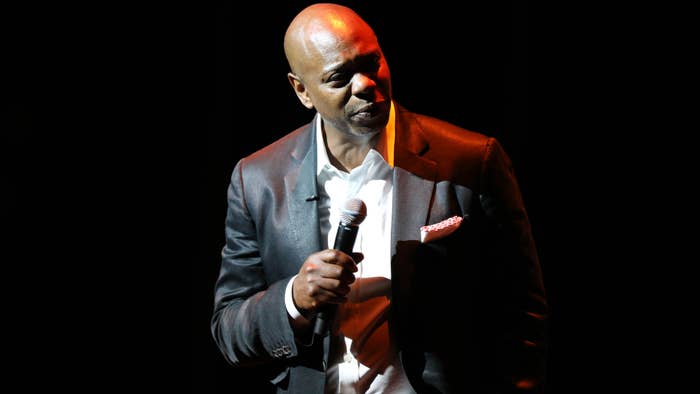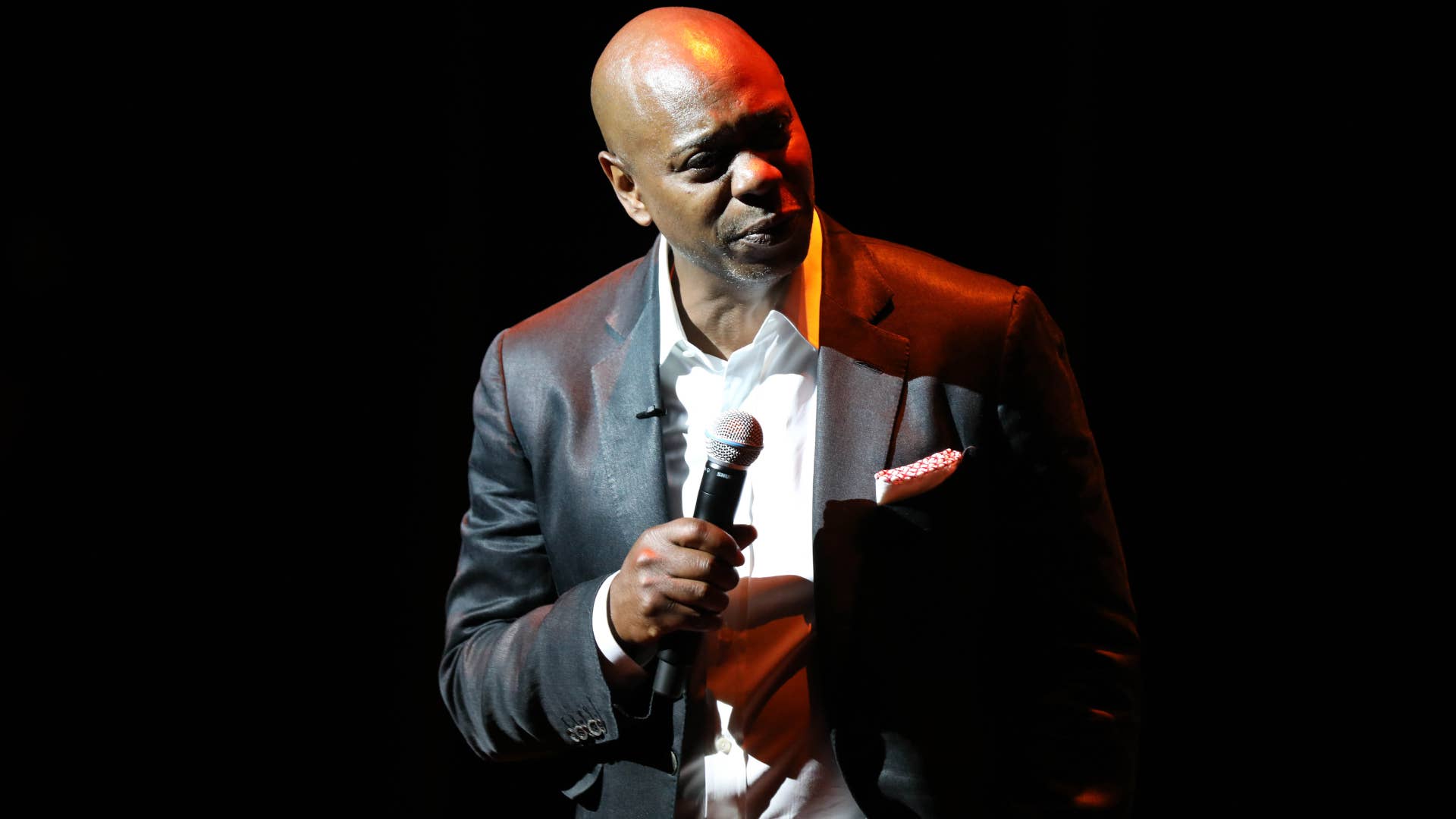
Netflix is all in on Dave Chappelle. So much so, in fact, that the streamer has released a recent speech from the comedian to its platform in which he again defends material that has been widely criticized as transphobic.
Billed as a Netflix “film,” the 39-minute speech carries the title What’s in a Name: Speech at Duke Ellington School of the Arts. The title, of course, is a reference to Chappelle’s previously reported decision to not have his name on a new theater at his alma mater.
The video opens with a Duke Ellington quote displayed on the screen in white text, followed by a brief explainer on the context of the speech, which made headlines last month. From there, 48-year-old Chappelle is seen reflecting on how he came to be a student at the school and how that experience shaped his career.
In the final stretch of the speech, Chappelle turns his talk to the aforementioned criticism, specifically reflecting on the pushback he received from young students about his recent material.
“These kids said everything about gender and this and that and the other, but they didn’t say anything about art,” he said. “And this is my biggest gripe with this whole controversy with The Closer. You cannot report on an artist’s work and remove artistic nuance from his words. It would be like if you were reading the newspaper and they say ‘man shot in the face by a six-foot rabbit, expected to survive.’ You’d be like, ‘oh my god.’ And they never tell you it’s a Bugs Bunny cartoon.”
Chappelle continued, saying he was “hurt” by the events of that day.
“When I heard these talking points coming out of these children’s faces, that really sincerely hurt me,” he said. “Because I know those kids didn’t come up with those words. I’ve heard those words before.”
In Chappelle’s opinion, the students “didn’t understand that they were instruments, instruments of oppression.” He also spoke more generally about expression, arguing that it becomes “more urgent” for him to say certain things when called out for it.
“The more you say I can’t say something, the more urgent it is for me to say it,” he said. “And it has nothing to do with what you’re saying I can’t say. It has everything to do with my right—my freedom—to artistic expression that is valuable to me, that is not separate from me.”
The criticism against Chappelle (as well as Netflix itself, in addition to other comedians including Ricky Gervais) has persisted in the wake of The Closer. The controversy was further compounded by criticism surrounding how Netflix leadership is said to have handled internal discussions over the material, with co-CEO Ted Sarandos having defended the content on multiple occasions.
Other comedians, meanwhile, have shared their thoughts on this era of Chappelle’s career. Among them is Jerrod Carmichael, who wondered aloud during a GQ interview last month with Frazier Tharpe why Chappelle would want this to be a part of his legacy.
“It’s an odd hill to die on,” Carmichael said at the time. “And it’s like, hey, bro. Who the fuck are you? Who do you fuck? What do you like to do? Childish jokes aside, who the fuck are you? It’s just kind of played. But he’s choosing to die on the hill. So, alright, let him.”

